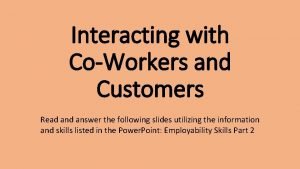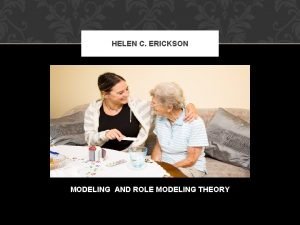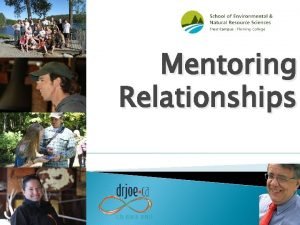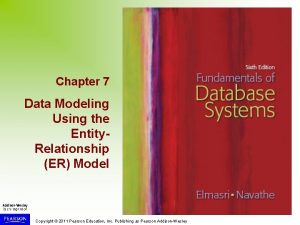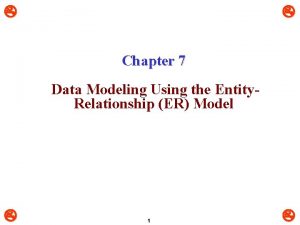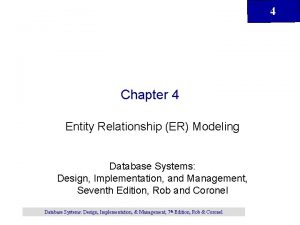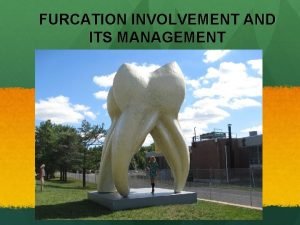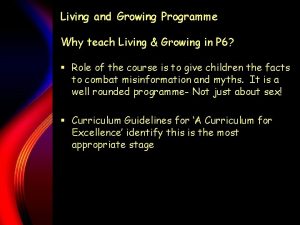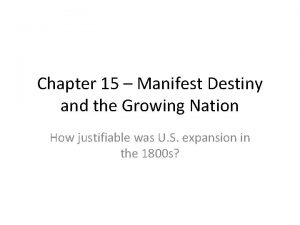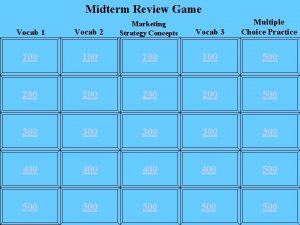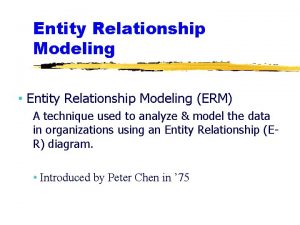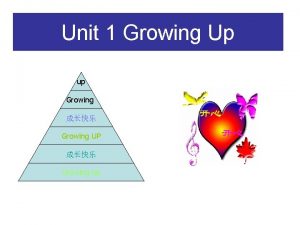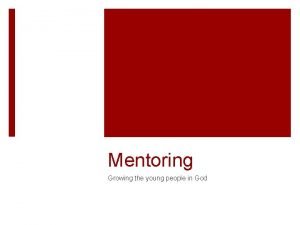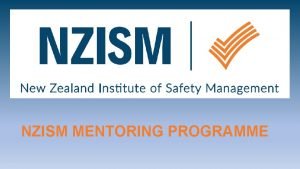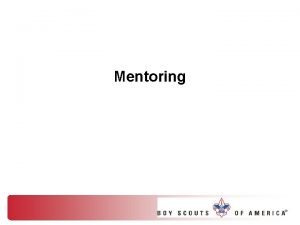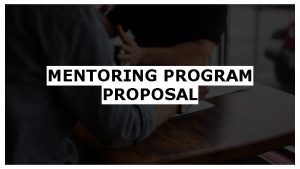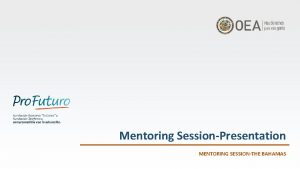Mentoring Growing Coworkers through Relationship and Modeling Mentoring















- Slides: 15

Mentoring Growing Coworkers through Relationship and Modeling

Mentoring is a relational teaching method which relies heavily on modeling. It provides a safe and supportive environment for risk taking. It utilizes challenges to provide appropriate risks. The mentor models vision, in terms of patterns of thinking, to guide the mentoree into appropriate problem-solving and relational paradigms. Mentoring is dynamic in that it results in a gradual increase in self-teaching and therefore a changing relationship with the mentor.

Leaders as Mentors § Be a facilitator and coach, not an order-giver. § Motivate through involvement. § Maintain a sense of partnership. § Look for challenges in work as teaching opportunities.

Role of a Mentor Treating people as partners leads to the development of independent coworkers; treating them as observers leads to the formation of dependent followers who continue asking for guidance.

Growth Necessitates Movement § Support provides safety for movement. § Challenge provides motivation for movement. § Vision provides guidance for movement.

Supporting § § Listening Providing structure Safe environment Providing continuity (through presence and experience) § Encouraging § Advocating § Offering mental maps § Positive expectations

Challenging § Setting tasks § Questioning assumptions or approaches § Setting standards § Encouraging hypothetical thinking § Providing feedback § Constructing hypotheses

Purpose of Challenge When a mentor challenges, it creates cognitive dissonance which the mentoree wants to eliminate. This is intended to lead to growth.

Visioning § Modeling § Providing cognitive maps § New language § Metaphors § Analyzing one’s own position from different vantage points

Centrality of Vision § Vision is the ability to see the world in new ways. § One purpose of mentoring is to unveil new perspectives, new ways of thinking and acting. § Mentoring should assist people in becoming critical thinkers.

Mentors’ Comprehensive Approach to Topics § Broad overview § Context § Relationship to other topics § Assumptions and their alternatives § Discussion and debate § Applications, past and possible § § § History Experts Cultural Variances Other points of view Controversial positions and perspectives § Analysis § Reflection § Polarities vs. either/or

The Growth Dialectic § Support confirms, identifies, and establishes thesis. § Challenge identifies and proposes the antithesis. § Vision enables synthesis. Thesis (Support) + Antithesis (Challenge) => Synthesis (Vision)

Vision as the Basis for Change “Vision…is the field on which the dialectical game between the old self and the new can be played; it is the context that hosts both support and challenge in the service of transformation. ” Laurent Daloz Synthesis is not compromise, but a way of thinking in which the only solution is through an understanding of the opposing position.

Final Thoughts We learn as much from how we are taught as from what we are taught. Spend more time with fewer people to create a lasting impact.

 Interacting with coworkers
Interacting with coworkers Helen erickson nursing theory
Helen erickson nursing theory Dimensional modeling vs relational modeling
Dimensional modeling vs relational modeling Mentoring relationship definition
Mentoring relationship definition Data modeling using entity relationship model
Data modeling using entity relationship model Data modeling using the entity relationship model
Data modeling using the entity relationship model Er
Er Methods of timber conversion
Methods of timber conversion Through one man sin entered
Through one man sin entered Furcation
Furcation Night of the scorpion by nissim ezekiel
Night of the scorpion by nissim ezekiel Difference between rm and crm
Difference between rm and crm Living and growing how babies are made
Living and growing how babies are made Travel in a growing nation answer key
Travel in a growing nation answer key Building keeping and growing profitable value-laden
Building keeping and growing profitable value-laden Growing pains for the new nation
Growing pains for the new nation
